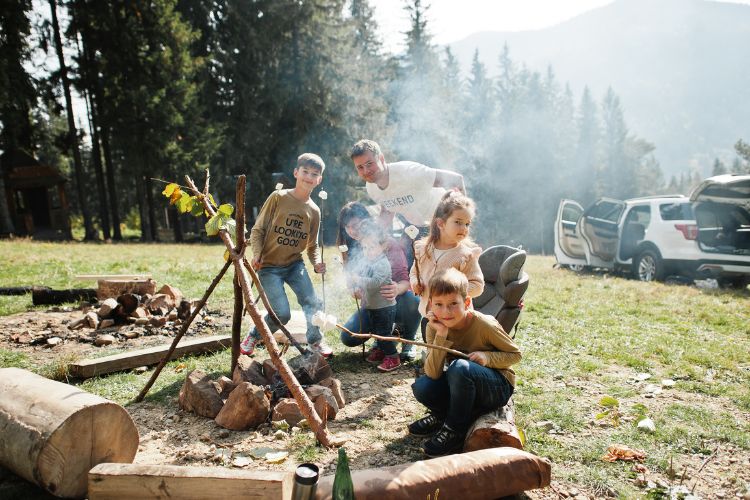The allure of a nomadic lifestyle and the freedom to travel while working has led many individuals and families to explore the world of workamping. Workamping, a portmanteau of “work” and “camping,” is a unique employment opportunity that allows people to combine work with their passion for adventure. However, one question that frequently arises is whether it’s possible to work camp with a child.
Can You Work Camp with a Kid? Yes, it is possible to work at a camp with a child, but it typically depends on the camp’s policies and the nature of your job. Some camps offer on-site accommodations for staff with families, while others may have restrictions on children’s presence due to safety or logistical reasons.
Contents
Can You Work Camp with a Kid
| Working at Camp with a Child | Description |
|---|---|
| Camp Policies | The possibility of working at a camp with a child depends on the camp’s specific policies. Some camps may offer accommodations or allow staff to bring their children, while others may have restrictions for safety or logistical reasons. |
| Communication | It’s crucial to communicate with the camp administration early in the hiring process to discuss the possibility of bringing a child to work and to understand the camp’s guidelines and accommodations, if any. |
| Job Nature | The type of job you have at the camp may influence whether it’s feasible to work with a child. Administrative or managerial roles may have more flexibility, while certain roles like lifeguarding or outdoor leadership may have stricter requirements. |
| Accommodations | Some camps provide on-site housing for staff with families, making it more convenient for employees to work with their children. Understanding the availability and suitability of these accommodations is essential. |
| Childcare Arrangements | If the camp allows staff to bring children, you’ll need to make childcare arrangements during work hours to ensure your child’s safety and well-being while you fulfill your job responsibilities. |
| Flexibility and Support | Assess the camp’s willingness to provide support and flexibility for staff with children, such as adjusting schedules or providing assistance with childcare. This can vary among camps. |
Working at a camp with a child is possible in some cases, but it requires clear communication with the camp administration, understanding of camp policies, and careful consideration of the job role and childcare arrangements.
Key Takeaways
- The possibility of working at a camp with a child depends on the camp’s specific policies, which can vary widely.
- Early communication with the camp administration is essential to discuss the feasibility of bringing a child to work and to understand the camp’s guidelines and accommodations, if available.
- The nature of your job at the camp may influence whether it’s feasible to work with a child, as certain roles may have more flexibility than others.
- If the camp allows staff to bring children, arranging suitable childcare during work hours is crucial to ensure the child’s safety and well-being.
- Assess the camp’s willingness to provide support and flexibility for staff with children, including adjusting schedules or offering assistance with childcare, as this can vary among camps.

What is Workamping?
Before we dive into the main question, let’s first understand what workamping entails. Workamping is a lifestyle that allows individuals or families to live and work in various locations while traveling.
Typically, workampers take on short-term jobs or volunteer positions at campgrounds, RV parks, national parks, farms, amusement parks, and other tourist destinations. In exchange for their work, they often receive free or discounted accommodations, and sometimes even a salary.
Workamping offers a diverse range of job opportunities, from campground hosts and maintenance workers to office staff and activity coordinators. It’s an appealing option for those seeking adventure, flexibility, and a chance to experience different parts of the country.
Is Workamping with a Kid Feasible?
Now, let’s address the core question: Can you work camp with a kid? The short answer is yes, it’s absolutely possible. However, it comes with its own set of challenges and considerations that need to be carefully weighed before embarking on this journey.
1. Choosing Family-Friendly Workamping Positions
One of the first steps in making workamping feasible with a child is selecting the right job and location. Look for positions and destinations that are family-friendly. Campgrounds and RV parks often have roles suitable for families, such as office assistants, groundskeepers, or activities coordinators.
It’s crucial to research potential employers and locations thoroughly. Reach out to fellow workampers, read reviews, and check for any specific requirements or restrictions regarding children. Some campgrounds may have age restrictions or limited facilities for kids, so it’s essential to find a place that suits your family’s needs.

2. Balancing Work and Family Time1
Balancing work responsibilities with family time is vital when workamping with a child. Unlike traditional 9-to-5 jobs, workamping roles can vary in terms of hours and workload. It’s crucial to discuss expectations with your employer to ensure you have enough time to spend with your child.
Moreover, plan your work schedule in a way that allows you to create lasting memories with your family. Explore nearby attractions, participate in campground activities, and connect with other families on the road. Workamping can be an excellent opportunity for your child to learn and grow while experiencing the world.
3. Homeschooling and Education
If you have school-age children, you’ll need to address their education while workamping. Many workamping families choose homeschooling as a flexible option that accommodates their travel schedule. Research the homeschooling laws and requirements in your home state and any states you plan to visit.
Fortunately, there are numerous resources available for homeschooling on the road, including online curricula, educational apps, and local homeschooling communities. This allows you to provide your child with a well-rounded education while exploring new places.

4. Health and Safety
Ensuring the health and safety of your child is a top priority when workamping. Make sure you have adequate health insurance coverage that extends to your child. Familiarize yourself with local healthcare facilities and emergency services in the areas you’ll be traveling to.
Additionally, maintain a safe and child-friendly RV or living space. Childproof your RV or camper to prevent accidents and injuries. Always have a first-aid kit on hand and teach your child basic safety rules for outdoor activities.
5. Social Interaction for Your Child
Workamping often involves a transient lifestyle, which can impact your child’s social life. To counteract this, encourage your child to interact with other kids at the campgrounds or through local activities. Many campgrounds have social events and play areas where children can make friends.
You can also connect with other workamping families through social media groups or forums, allowing your child to build relationships with other kids on the road. Building a supportive network can enhance the workamping experience for both you and your child.
Real-Life Stories: Workamping with Kids
To provide further insight into the world of workamping with kids, let’s explore the experiences of real families who have embraced this unique lifestyle:
The Johnson Family
The Johnson family, consisting of parents Sarah and David and their two children, embarked on a workamping adventure across the United States. They initially had concerns about how their kids would cope with a constantly changing environment. However, the family quickly adapted to their new lifestyle.
“We’ve found that workamping has given our kids a well-rounded education. They learn about history, geography, and different cultures firsthand,” Sarah said. “Plus, they get to explore nature and participate in activities like hiking and fishing. It’s been an incredible experience for them.”
The Johnsons emphasized the importance of open communication and flexibility in their workamping journey. They rotate their work shifts to ensure one parent is always available for the children. They also prioritize homeschooling to provide a stable educational foundation.
The Martinez Family
The Martinez family, comprising parents Maria and Javier and their teenage daughter, Sophia, decided to workamp as a way to spend more quality time together. Sophia, a high school student, continued her education through online courses while traveling with her parents.
“We wanted to create lasting memories and bond as a family,” Maria explained. “Workamping allowed us to do just that. We’ve visited breathtaking national parks, explored historical sites, and shared unforgettable experiences.”
Sophia added, “I’ve learned so much from our travels. It’s a unique education you can’t get in a classroom. I’ve also become more independent and resourceful.”
Tips for Successful Workamping with Kids
Now that you’ve heard from real workamping families, let’s summarize some key tips for a successful workamping experience with your child:
- Research Thoroughly: Choose family-friendly workamping positions and destinations that suit your child’s needs and interests.
- Balance Work and Family Time: Communicate with your employer about your family commitments and plan your work schedule accordingly.
- Homeschooling: Familiarize yourself with homeschooling laws and resources to ensure your child receives a quality education on the road.
- Health and Safety: Prioritize your child’s health and safety by having the right insurance, childproofing your living space, and being prepared for emergencies.
- Social Interaction: Encourage your child to interact with other kids at campgrounds, participate in activities, and connect with other workamping families.
Conclusion
In conclusion, workamping with a kid is not only possible but can be an enriching and transformative experience for your family.
By choosing family-friendly workamping positions, balancing work and family time, providing a quality education, ensuring health and safety, and promoting social interaction, you can create a fulfilling and memorable adventure for both you and your child.
As you plan your workamping journey, remember that flexibility and communication are key. Embrace the opportunity to explore new places, learn together, and build lifelong memories.
Workamping with a child may come with its challenges, but the rewards of shared adventures and a closer-knit family are well worth it. So, pack your bags, hit the road, and embark on a workamping adventure that your family will cherish forever.






